Leor Hackel
@leorhackel.bsky.social
Assistant professor of psychology @ USC studying social learning and decision making. Social psych/social neuroscience. hackellab.org
Pinned
Leor Hackel
@leorhackel.bsky.social
· Feb 7


Excited to share new work in TiCS
on Simplifying Social Learning: authors.elsevier.com/a/1iZ4S4sIRv...
We highlight how social expertise lets us simplify complex reinforcement learning, offering a prototype for how people can turn hard learning problems into easier ones.
on Simplifying Social Learning: authors.elsevier.com/a/1iZ4S4sIRv...
We highlight how social expertise lets us simplify complex reinforcement learning, offering a prototype for how people can turn hard learning problems into easier ones.
Reposted by Leor Hackel
Exposure to individual solutions does not weaken belief in the need for structural change! Read the paper here:
www.cambridge.org/core/journal...
We find the same thing with climate change and public health across multiple massive global datasets (with evidence from 67 countries)
www.cambridge.org/core/journal...
We find the same thing with climate change and public health across multiple massive global datasets (with evidence from 67 countries)

October 16, 2025 at 11:47 AM
Exposure to individual solutions does not weaken belief in the need for structural change! Read the paper here:
www.cambridge.org/core/journal...
We find the same thing with climate change and public health across multiple massive global datasets (with evidence from 67 countries)
www.cambridge.org/core/journal...
We find the same thing with climate change and public health across multiple massive global datasets (with evidence from 67 countries)
Reposted by Leor Hackel
One of the papers I've been most excited about since starting the lab!
We adopt a network neuroscience approach to understand how arousal reconfigures large-scale functional network organization to support memory of complex narratives!
We adopt a network neuroscience approach to understand how arousal reconfigures large-scale functional network organization to support memory of complex narratives!
Out now in @nathumbehav.nature.com! We applied graph theoretic analyses to fMRI data of participants watching movies/listening to stories. Integration across large-scale functional networks mediates arousal-dependent enhancement of narrative memories. Open access link: rdcu.be/eKKAw
October 13, 2025 at 6:35 PM
One of the papers I've been most excited about since starting the lab!
We adopt a network neuroscience approach to understand how arousal reconfigures large-scale functional network organization to support memory of complex narratives!
We adopt a network neuroscience approach to understand how arousal reconfigures large-scale functional network organization to support memory of complex narratives!
Reposted by Leor Hackel
Very excited to share that my first paper, with Peter Mende-Siedlecki and @leorhackel.bsky.social, is out now in @commspsychol.nature.com! ☺️
Can getting more rewards make you feel more skilled, even if your performance doesn't change?
www.nature.com/articles/s44...
Can getting more rewards make you feel more skilled, even if your performance doesn't change?
www.nature.com/articles/s44...

Rewards bias self-evaluations of ability - Communications Psychology
People often receive rewards for good performance, but what happens when rewards do not reflect ability? Two behavioral studies suggest that rewards can impact how we evaluate our own ability, above and beyond the impact of actual performance.
www.nature.com
October 3, 2025 at 6:12 PM
Very excited to share that my first paper, with Peter Mende-Siedlecki and @leorhackel.bsky.social, is out now in @commspsychol.nature.com! ☺️
Can getting more rewards make you feel more skilled, even if your performance doesn't change?
www.nature.com/articles/s44...
Can getting more rewards make you feel more skilled, even if your performance doesn't change?
www.nature.com/articles/s44...
New work led by the brilliant @yizhang96.bsky.social:
In lab experiments and naturalistic groups, people generalize perceptions of acceptance and rejection across social network ties.
In lab experiments and naturalistic groups, people generalize perceptions of acceptance and rejection across social network ties.
New paper out in Journal of Experimental Social Psychology! 🎉
How do we figure out who will accept or reject us in a new group?
We show that people generalize relational value across friendship ties—forming a network gradient of approach & avoidance.
authors.elsevier.com/a/1lq3x51f8w...
How do we figure out who will accept or reject us in a new group?
We show that people generalize relational value across friendship ties—forming a network gradient of approach & avoidance.
authors.elsevier.com/a/1lq3x51f8w...
September 25, 2025 at 1:54 PM
New work led by the brilliant @yizhang96.bsky.social:
In lab experiments and naturalistic groups, people generalize perceptions of acceptance and rejection across social network ties.
In lab experiments and naturalistic groups, people generalize perceptions of acceptance and rejection across social network ties.
Reposted by Leor Hackel
New paper out in Journal of Experimental Social Psychology! 🎉
How do we figure out who will accept or reject us in a new group?
We show that people generalize relational value across friendship ties—forming a network gradient of approach & avoidance.
authors.elsevier.com/a/1lq3x51f8w...
How do we figure out who will accept or reject us in a new group?
We show that people generalize relational value across friendship ties—forming a network gradient of approach & avoidance.
authors.elsevier.com/a/1lq3x51f8w...
September 24, 2025 at 5:28 AM
New paper out in Journal of Experimental Social Psychology! 🎉
How do we figure out who will accept or reject us in a new group?
We show that people generalize relational value across friendship ties—forming a network gradient of approach & avoidance.
authors.elsevier.com/a/1lq3x51f8w...
How do we figure out who will accept or reject us in a new group?
We show that people generalize relational value across friendship ties—forming a network gradient of approach & avoidance.
authors.elsevier.com/a/1lq3x51f8w...
Reposted by Leor Hackel
🚨New paper out w/ @gershbrain.bsky.social & @fierycushman.bsky.social from my time @Harvard!
Humans are capable of sophisticated theory of mind, but when do we use it?
We formalize & document a new cognitive shortcut: belief neglect — inferring others' preferences, as if their beliefs are correct🧵
Humans are capable of sophisticated theory of mind, but when do we use it?
We formalize & document a new cognitive shortcut: belief neglect — inferring others' preferences, as if their beliefs are correct🧵

September 17, 2025 at 12:58 AM
🚨New paper out w/ @gershbrain.bsky.social & @fierycushman.bsky.social from my time @Harvard!
Humans are capable of sophisticated theory of mind, but when do we use it?
We formalize & document a new cognitive shortcut: belief neglect — inferring others' preferences, as if their beliefs are correct🧵
Humans are capable of sophisticated theory of mind, but when do we use it?
We formalize & document a new cognitive shortcut: belief neglect — inferring others' preferences, as if their beliefs are correct🧵
Reposted by Leor Hackel
🚨 New Preprint 🚨
Prolonged Isolation is associated with an increased behavioural sensitivity to ‘Likes’ on social media.
🧵
Social media rewards are inherently social—but does posting change during social isolation, when in-person social rewards are limited?
It turns out, yes!
Prolonged Isolation is associated with an increased behavioural sensitivity to ‘Likes’ on social media.
🧵
Social media rewards are inherently social—but does posting change during social isolation, when in-person social rewards are limited?
It turns out, yes!
September 16, 2025 at 11:19 AM
🚨 New Preprint 🚨
Prolonged Isolation is associated with an increased behavioural sensitivity to ‘Likes’ on social media.
🧵
Social media rewards are inherently social—but does posting change during social isolation, when in-person social rewards are limited?
It turns out, yes!
Prolonged Isolation is associated with an increased behavioural sensitivity to ‘Likes’ on social media.
🧵
Social media rewards are inherently social—but does posting change during social isolation, when in-person social rewards are limited?
It turns out, yes!
Reposted by Leor Hackel
We are hiring a full time project assistant! Please forward to any bright, curious team players you know who might be interested in applying:
usc.wd5.myworkdayjobs.com/ExternalUSCC...
usc.wd5.myworkdayjobs.com/ExternalUSCC...

Project Assistant (Fixed-Term)
The University of Southern California (USC), founded in 1880, is located in the heart of downtown Los Angeles and is the largest private employer in the City of Los Angeles. USC is consistently ranked...
usc.wd5.myworkdayjobs.com
September 16, 2025 at 2:31 AM
We are hiring a full time project assistant! Please forward to any bright, curious team players you know who might be interested in applying:
usc.wd5.myworkdayjobs.com/ExternalUSCC...
usc.wd5.myworkdayjobs.com/ExternalUSCC...
Reposted by Leor Hackel
Excited to share our new preprint! 🚨
Does human learning have an automatic aspect? Is it possible that we learn things that are counterproductive and only lead to reduced gains?
Does human learning have an automatic aspect? Is it possible that we learn things that are counterproductive and only lead to reduced gains?
September 2, 2025 at 12:32 PM
Excited to share our new preprint! 🚨
Does human learning have an automatic aspect? Is it possible that we learn things that are counterproductive and only lead to reduced gains?
Does human learning have an automatic aspect? Is it possible that we learn things that are counterproductive and only lead to reduced gains?
Reposted by Leor Hackel
Hi friends - new paper! about the cognitive mechanisms underlying social categorization and polarization. "Increased complexity of social category markers leads to diverse rule-based categorizations and reduced intergroup bias" more below... royalsocietypublishing.org/doi/10.1098/...
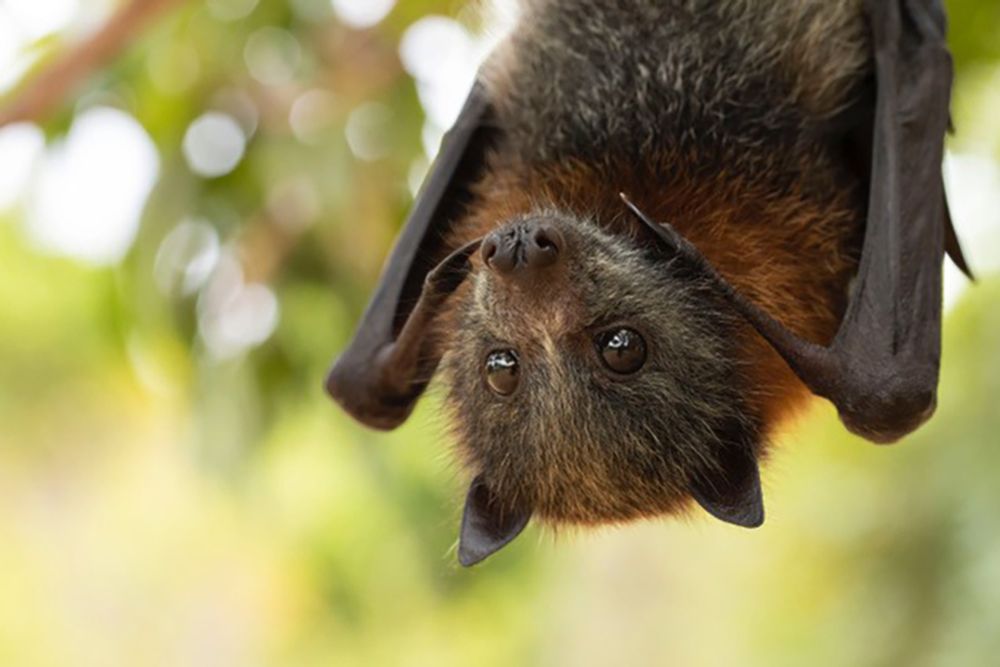
Increased complexity of social category markers leads to diverse rule-based categorizations and reduced intergroup bias | Proceedings of the Royal Society B: Biological Sciences
Social categories are key to human social life, often leading to intergroup bias and
stereotypes. While traditional studies use binary social markers, real-world markers
are more complex. This study e...
royalsocietypublishing.org
July 30, 2025 at 6:01 PM
Hi friends - new paper! about the cognitive mechanisms underlying social categorization and polarization. "Increased complexity of social category markers leads to diverse rule-based categorizations and reduced intergroup bias" more below... royalsocietypublishing.org/doi/10.1098/...
Our latest paper, led by @yizhang96.bsky.social, finds Pavlovian learning shapes empathy:
People can link another person's abstract mental states—like feeling good or bad—with reward. This shapes empathy in new situations where those feelings are perceived.
People can link another person's abstract mental states—like feeling good or bad—with reward. This shapes empathy in new situations where those feelings are perceived.
🥳Excited to share that our new paper is live at Psychological Science @psychscience.bsky.social! We show that Pavlovian learning can grow empathy for another person. 🧵👇
July 30, 2025 at 2:41 PM
Our latest paper, led by @yizhang96.bsky.social, finds Pavlovian learning shapes empathy:
People can link another person's abstract mental states—like feeling good or bad—with reward. This shapes empathy in new situations where those feelings are perceived.
People can link another person's abstract mental states—like feeling good or bad—with reward. This shapes empathy in new situations where those feelings are perceived.
Reposted by Leor Hackel
🥳Excited to share that our new paper is live at Psychological Science @psychscience.bsky.social! We show that Pavlovian learning can grow empathy for another person. 🧵👇
July 30, 2025 at 12:35 AM
🥳Excited to share that our new paper is live at Psychological Science @psychscience.bsky.social! We show that Pavlovian learning can grow empathy for another person. 🧵👇
We are recruiting a joint lab manager at USC! (80% of time with @elisabaek.bsky.social, 20% of time in my lab).
Our labs study social connection and social learning/decision-making using social neuro, social cognition, and computational modeling approaches.
Please share!
Our labs study social connection and social learning/decision-making using social neuro, social cognition, and computational modeling approaches.
Please share!
🚨We are recruiting a lab manager who will spend 80% of their effort in my lab and 20% of their effort in @leorhackel.bsky.social's lab. Please share widely!
Apply at usccareers.usc.edu/job/los-ange... with:
completed questionnaire (socolab.org/lab-manager-application), CV & Cover Letter!
Apply at usccareers.usc.edu/job/los-ange... with:
completed questionnaire (socolab.org/lab-manager-application), CV & Cover Letter!
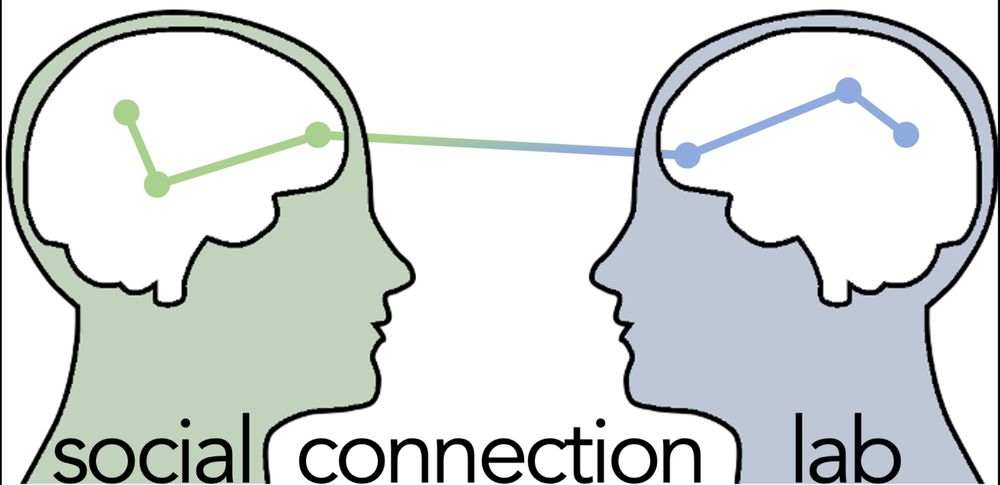
Home | Social Connection Lab
The Social Connection Lab ("SoCoLab") at USC investigates what helps people feel socially connected to one another.
socolab.org
July 29, 2025 at 5:26 PM
We are recruiting a joint lab manager at USC! (80% of time with @elisabaek.bsky.social, 20% of time in my lab).
Our labs study social connection and social learning/decision-making using social neuro, social cognition, and computational modeling approaches.
Please share!
Our labs study social connection and social learning/decision-making using social neuro, social cognition, and computational modeling approaches.
Please share!
Reposted by Leor Hackel
🚨New paper now out in Emotion!! As a post-bacc, Dr. Jamil Zaki & @leorhackel.bsky.social supported me in developing my own research project. 7+ years later, I received notice of publication acceptance the day before my dissertation defense🥲 Check out abstract and DM for PDF access!

July 7, 2025 at 6:30 PM
🚨New paper now out in Emotion!! As a post-bacc, Dr. Jamil Zaki & @leorhackel.bsky.social supported me in developing my own research project. 7+ years later, I received notice of publication acceptance the day before my dissertation defense🥲 Check out abstract and DM for PDF access!
Reposted by Leor Hackel
Excited to share our new review on how neuroimaging and computational models can help uncover how people see what they want to see, now out at @cp-trendscognsci.bsky.social! It was a blast writing this with Haena Kim and @iancballard.bsky.social
www.sciencedirect.com/science/arti...
www.sciencedirect.com/science/arti...
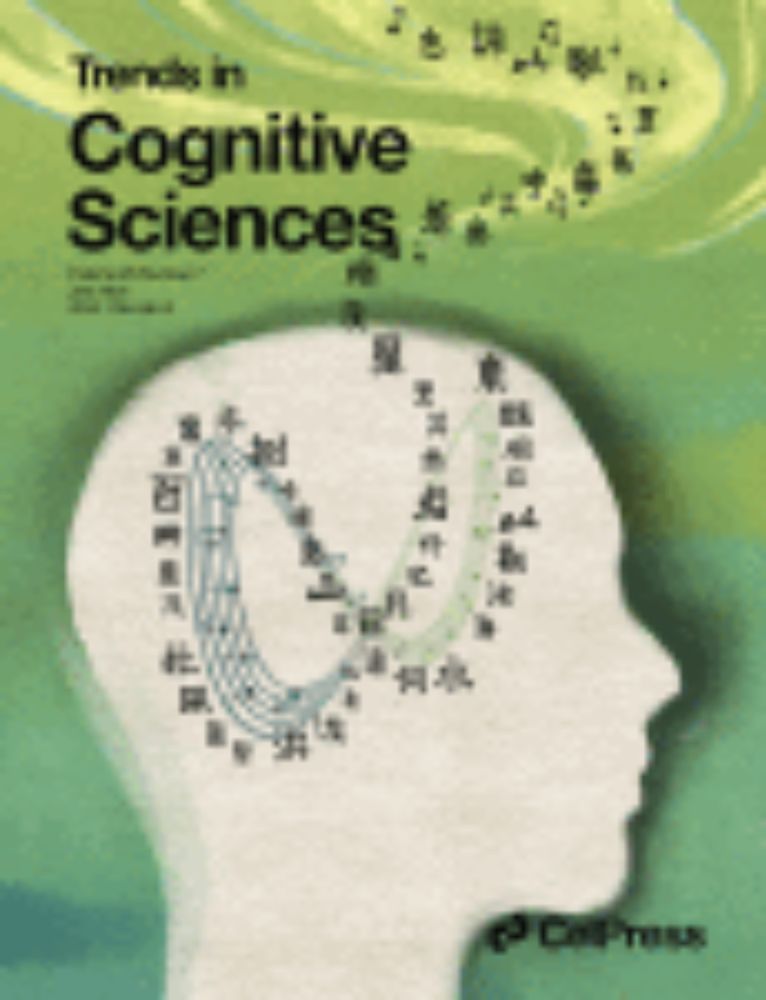
A neurocomputational account of motivated seeing
Do goals, beliefs, and desires affect visual experience? This question has long been controversial in cognitive science. There exists extensive litera…
www.sciencedirect.com
July 2, 2025 at 4:52 PM
Excited to share our new review on how neuroimaging and computational models can help uncover how people see what they want to see, now out at @cp-trendscognsci.bsky.social! It was a blast writing this with Haena Kim and @iancballard.bsky.social
www.sciencedirect.com/science/arti...
www.sciencedirect.com/science/arti...
Reposted by Leor Hackel
Paper in @pnas.org in which @d-melnikoff.bsky.social and I provide evidence for model-based effects on automatic evaluation. This was a super fun “adversarial” collaboration with 0 adversariality. It may have been nice to be right, but getting it right is nearly as nice: www.pnas.org/doi/10.1073/...
June 21, 2025 at 1:52 AM
Paper in @pnas.org in which @d-melnikoff.bsky.social and I provide evidence for model-based effects on automatic evaluation. This was a super fun “adversarial” collaboration with 0 adversariality. It may have been nice to be right, but getting it right is nearly as nice: www.pnas.org/doi/10.1073/...
Reposted by Leor Hackel
The value of ecologically irrelevant animal cognition research
Opinion by Scarlett Howard
tinyurl.com/37aedmfx
Opinion by Scarlett Howard
tinyurl.com/37aedmfx
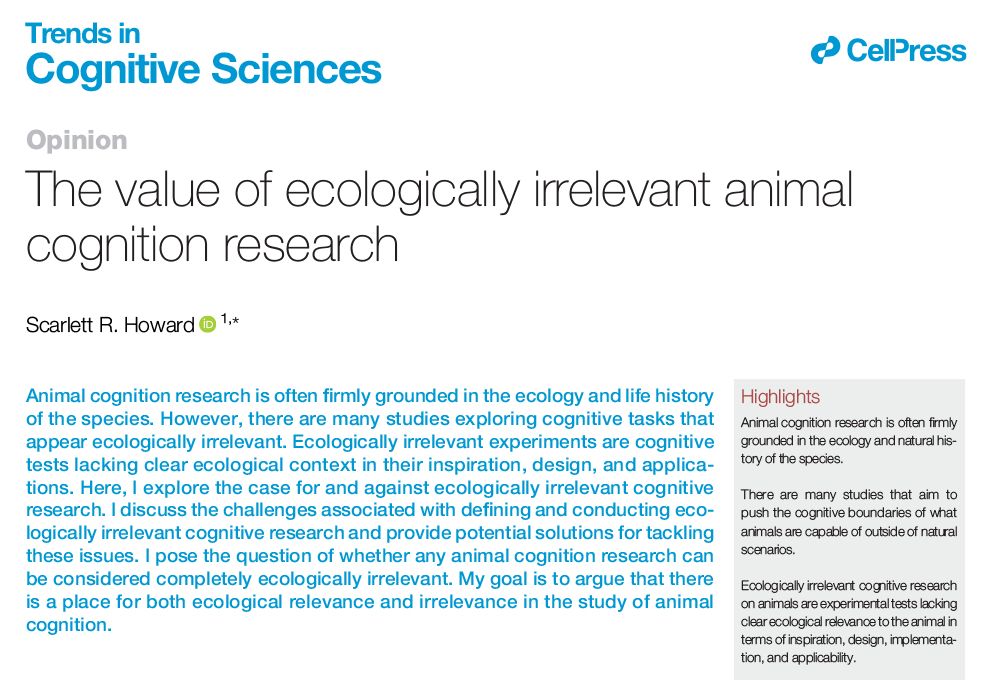
June 18, 2025 at 5:38 PM
The value of ecologically irrelevant animal cognition research
Opinion by Scarlett Howard
tinyurl.com/37aedmfx
Opinion by Scarlett Howard
tinyurl.com/37aedmfx
Reposted by Leor Hackel
I wrote about our new research on how the brain learns from social rejection — and why that matters for connection
👉 theconversation.com/your-brain-l...
👉 theconversation.com/your-brain-l...

Your brain learns from rejection − here’s how it becomes your compass for connection
Rejection can feel physically painful. It also provides a lesson for your brain on whom to connect with and how.
theconversation.com
June 9, 2025 at 6:28 PM
I wrote about our new research on how the brain learns from social rejection — and why that matters for connection
👉 theconversation.com/your-brain-l...
👉 theconversation.com/your-brain-l...
Reposted by Leor Hackel
I’m thrilled to share my new paper on impression formation & updating in @natrevpsychol.nature.com!
In it, I argue that impression formation is fundamentally a learning process. And as such, theories of impression formation should be based on mechanisms of learning and memory.
Some key take-aways:
In it, I argue that impression formation is fundamentally a learning process. And as such, theories of impression formation should be based on mechanisms of learning and memory.
Some key take-aways:
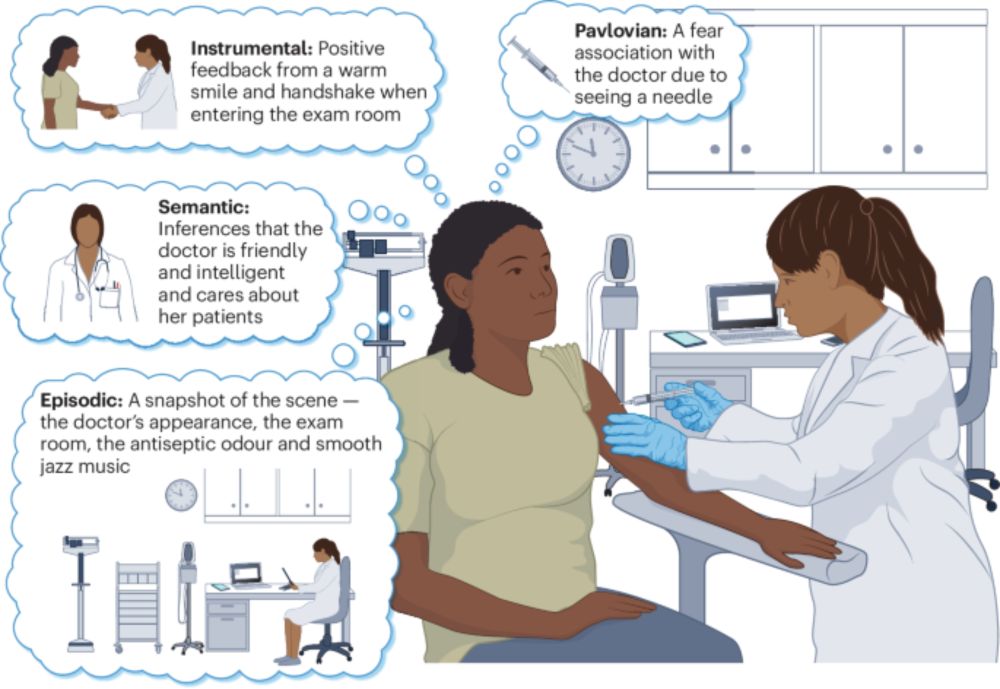
A learning and memory account of impression formation and updating - Nature Reviews Psychology
Impression formation occurs when a perceiver infers another person’s traits, goals and preferences and forms an attitude towards that person. In this Perspective, Amodio describes the unique and inter...
www.nature.com
May 12, 2025 at 5:25 PM
I’m thrilled to share my new paper on impression formation & updating in @natrevpsychol.nature.com!
In it, I argue that impression formation is fundamentally a learning process. And as such, theories of impression formation should be based on mechanisms of learning and memory.
Some key take-aways:
In it, I argue that impression formation is fundamentally a learning process. And as such, theories of impression formation should be based on mechanisms of learning and memory.
Some key take-aways:
Reposted by Leor Hackel
A learning and memory account of impression formation and updating
Perspective by David M. Amodio (@davidamodio.bsky.social)
Web: go.nature.com/3YTubx3
PDF: rdcu.be/ejREM
#psychology #psychscisky
Perspective by David M. Amodio (@davidamodio.bsky.social)
Web: go.nature.com/3YTubx3
PDF: rdcu.be/ejREM
#psychology #psychscisky
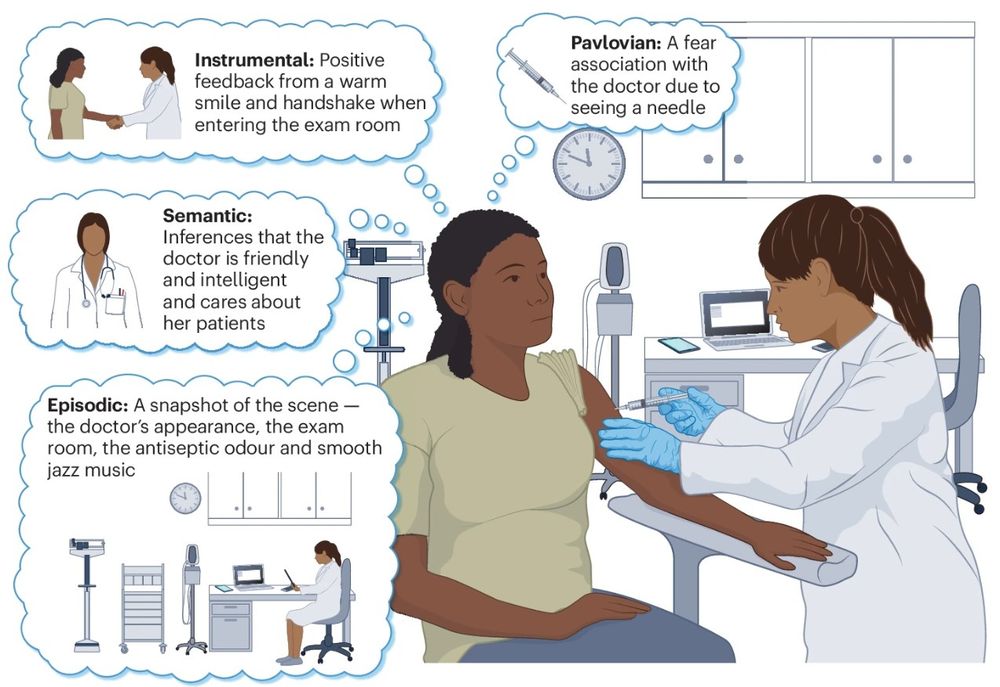
April 29, 2025 at 2:10 PM
A learning and memory account of impression formation and updating
Perspective by David M. Amodio (@davidamodio.bsky.social)
Web: go.nature.com/3YTubx3
PDF: rdcu.be/ejREM
#psychology #psychscisky
Perspective by David M. Amodio (@davidamodio.bsky.social)
Web: go.nature.com/3YTubx3
PDF: rdcu.be/ejREM
#psychology #psychscisky
Reposted by Leor Hackel
Thrilled to share that my first, first-author paper is out now!
Using an episode of 'Survivor', we find that distinct features of conversation – semantic similarity, emotional tone, and confidence – strongly inform observers about underlying social relationships.
link.springer.com/article/10.3...
Using an episode of 'Survivor', we find that distinct features of conversation – semantic similarity, emotional tone, and confidence – strongly inform observers about underlying social relationships.
link.springer.com/article/10.3...

Conversational linguistic features inform social-relational inference - Psychonomic Bulletin & Review
Whether it is the first day of school or a new job, individuals often find themselves in situations where they must learn the structure of existing social relationships. However, the mechanisms throug...
link.springer.com
March 7, 2025 at 3:53 PM
Thrilled to share that my first, first-author paper is out now!
Using an episode of 'Survivor', we find that distinct features of conversation – semantic similarity, emotional tone, and confidence – strongly inform observers about underlying social relationships.
link.springer.com/article/10.3...
Using an episode of 'Survivor', we find that distinct features of conversation – semantic similarity, emotional tone, and confidence – strongly inform observers about underlying social relationships.
link.springer.com/article/10.3...
Reposted by Leor Hackel
👀New preprint! In 3 prereg experiments we study how engagement-based algorithms amplify ingroup, moral and emotional (IME) content in ways that disrupt social norm learning (and test one solution!) w/ @joshcjackson.bsky.social and my amazing lab managers
@merielcd.bsky.social
& Silvan Baier 🧵👇
@merielcd.bsky.social
& Silvan Baier 🧵👇
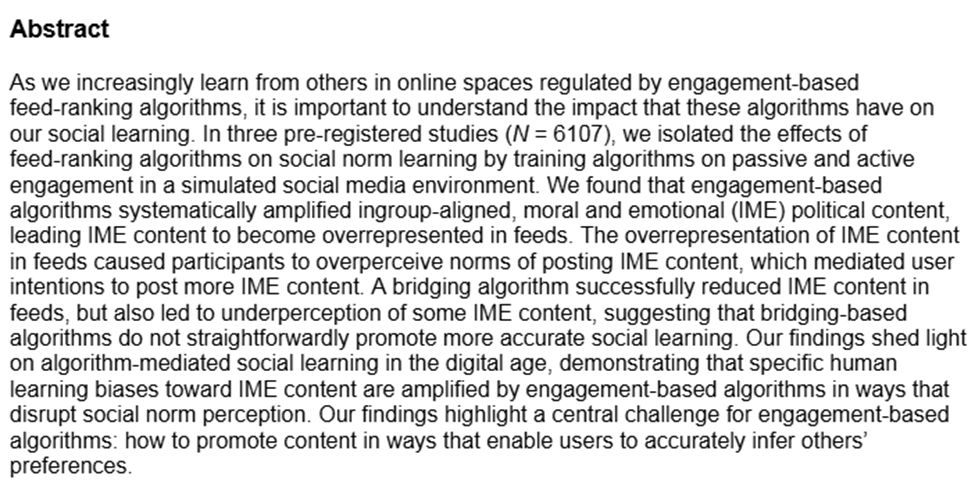
February 14, 2025 at 3:27 PM
👀New preprint! In 3 prereg experiments we study how engagement-based algorithms amplify ingroup, moral and emotional (IME) content in ways that disrupt social norm learning (and test one solution!) w/ @joshcjackson.bsky.social and my amazing lab managers
@merielcd.bsky.social
& Silvan Baier 🧵👇
@merielcd.bsky.social
& Silvan Baier 🧵👇
If you’re a grad student or postdoc & would be interested in giving a virtual talk in our lab this semester, please email me!
We work on social learning and choice, and work broadly relevant to reward/motivation, social cognition/connection, and/or prosociality would be of interest to our group.
We work on social learning and choice, and work broadly relevant to reward/motivation, social cognition/connection, and/or prosociality would be of interest to our group.
Social Learning & Choice Lab | Hackel Lab
The SLAC Lab investigates how we learn and make decisions in social interactions across behavior, the mind, and the brain. @ USC Department of Psychology
hackellab.org
January 21, 2025 at 9:56 PM
If you’re a grad student or postdoc & would be interested in giving a virtual talk in our lab this semester, please email me!
We work on social learning and choice, and work broadly relevant to reward/motivation, social cognition/connection, and/or prosociality would be of interest to our group.
We work on social learning and choice, and work broadly relevant to reward/motivation, social cognition/connection, and/or prosociality would be of interest to our group.
Reposted by Leor Hackel
🚨Thrilled to share our new study, led By Dr. Inon Raz, in Cerebral Cortex🚨: "The Future, Before, and After".
The ability to imagine things we haven’t done before is one of the hallmarks of human cognition. How do we do it?
The ability to imagine things we haven’t done before is one of the hallmarks of human cognition. How do we do it?

December 9, 2024 at 4:44 PM
🚨Thrilled to share our new study, led By Dr. Inon Raz, in Cerebral Cortex🚨: "The Future, Before, and After".
The ability to imagine things we haven’t done before is one of the hallmarks of human cognition. How do we do it?
The ability to imagine things we haven’t done before is one of the hallmarks of human cognition. How do we do it?
Reposted by Leor Hackel
New paper out in @ScienceMagazine! In 8 studies (multiple platforms, methods, time periods) we find: misinformation evokes more outrage than trustworthy news, when it does it's shared more + ppl are less likely to read before sharing. w/ @killianmcl1 @Klonick @mollycrockett 🧵👇
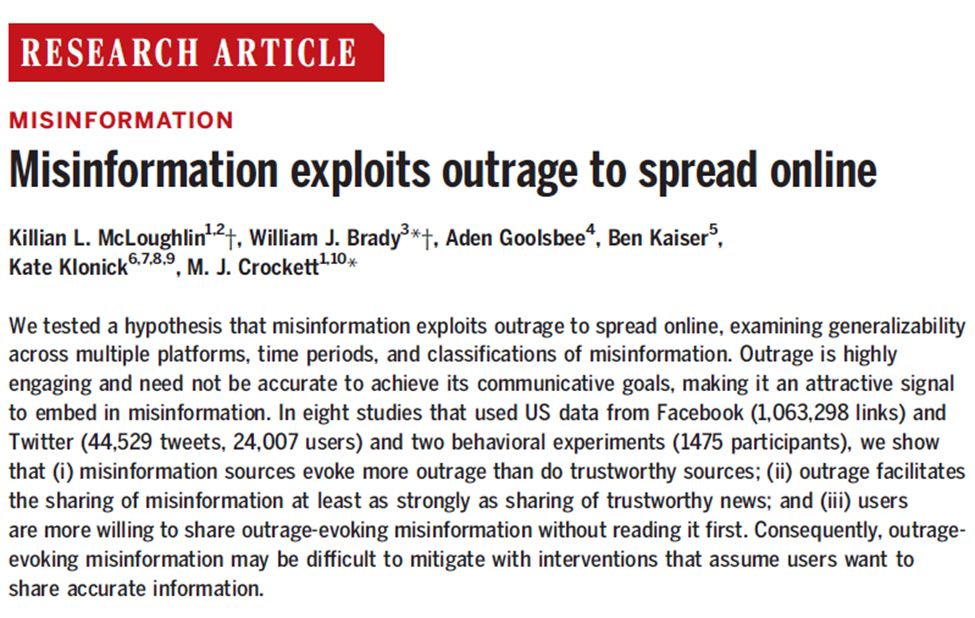
November 28, 2024 at 7:07 PM
New paper out in @ScienceMagazine! In 8 studies (multiple platforms, methods, time periods) we find: misinformation evokes more outrage than trustworthy news, when it does it's shared more + ppl are less likely to read before sharing. w/ @killianmcl1 @Klonick @mollycrockett 🧵👇

